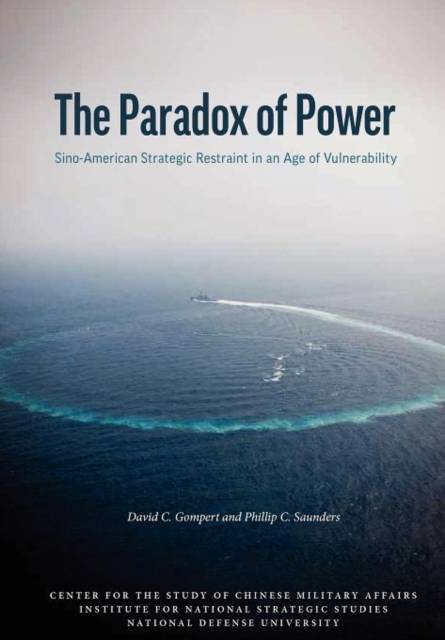
- Retrait gratuit dans votre magasin Club
- 7.000.000 titres dans notre catalogue
- Payer en toute sécurité
- Toujours un magasin près de chez vous
- Retrait gratuit dans votre magasin Club
- 7.000.0000 titres dans notre catalogue
- Payer en toute sécurité
- Toujours un magasin près de chez vous
The Paradox of Power
Sino-American Strategic Restraint in an Age of Vulnerability
David C Gompert, Phillip C Saunders, National Defense University Press
Livre broché | Anglais
28,95 €
+ 57 points
Format
Description
Published by the National Defense University, Institute for National Strategic Studies, Center for the Study of Chinese Military Affairs. From the foreword by Hans Binnendijk: "The first half of the 21st century will be dominated by the relationship between the United States and China. That relationship is likely to contain elements of both cooperation and competition. Territorial disputes such as those over Taiwan and the South China Sea will be an important feature of this competition, but both are traditional disputes, and traditional solutions suggest themselves. A more difficult set of issues relates to U.S.-Chinese competition and cooperation in three domains in which real strategic harm can be inflicted in the current era: nuclear, space, and cyber. Just as a clearer understanding of the fundamental principles of nuclear deterrence maintained adequate stability during the Cold War, a clearer understanding of the characteristics of these three domains can provide the underpinnings of strategic stability between the United States and China in the decades ahead. That is what this book is about. David Gompert and Phillip Saunders assess the prospect of U.S.- Chinese competition in these domains and develop three related analytic findings upon which their recommendations are built. The first is that in each domain, the offense is dominant. The second is that each side will be highly vulnerable to a strike from the other side. And the third is that the retaliating side will still be able to do unacceptable damage to the initiating party. Therefore, the authors make an important recommendation: that the United States propose a comprehensive approach based on mutual restraint whereby it and China can mitigate their growing strategic vulnerabilities. Unlike the Cold War, this mutual restraint regime may not take the form of binding treaties. But patterns of understanding and restraint may be enough to maintain stability".
Spécifications
Parties prenantes
- Auteur(s) :
- Editeur:
Contenu
- Nombre de pages :
- 224
- Langue:
- Anglais
Caractéristiques
- EAN:
- 9781780396620
- Date de parution :
- 27-12-11
- Format:
- Livre broché
- Format numérique:
- Trade paperback (VS)
- Dimensions :
- 170 mm x 244 mm
- Poids :
- 362 g

Les avis
Nous publions uniquement les avis qui respectent les conditions requises. Consultez nos conditions pour les avis.






